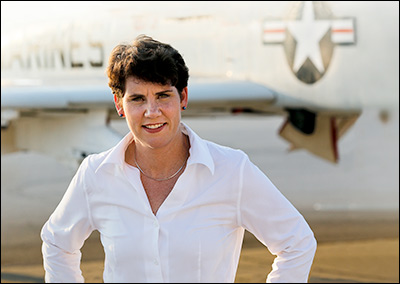By Jim Ellis
 Nov. 12, 2019 — The Cook Political Report in conjunction with the Henry J. Kaiser Foundation of San Francisco sponsored a four-state survey, called the “Blue Wall Voices Project,” covering key Great Lakes states to determine Democratic presidential primary standing within the region among other issues.
Nov. 12, 2019 — The Cook Political Report in conjunction with the Henry J. Kaiser Foundation of San Francisco sponsored a four-state survey, called the “Blue Wall Voices Project,” covering key Great Lakes states to determine Democratic presidential primary standing within the region among other issues.
The poll has an unusual methodology in that the survey period was long (Sep. 23-Oct. 15) and the 3,222 registered voter respondents, who were invited to participate, could do so through an online link or by calling to speak with an interviewer. The four selected states were Michigan (767 registered voter respondents; 208 likely Democratic primary voters), Minnesota (958; 249), Pennsylvania (752; 246), and Wisconsin (745; 274). The survey questionnaire contained 36 questions about issues, candidates, approval perception, and demographics, many with several subsets.
In terms of general election positioning, the results in all four states lead to the conclusion that President Trump is in need of refining his message since the respondents’ answers cut severely against his perceived positions on trade, immigration, and foreign affairs in particular.
Short-term, the Democratic presidential responses were of greatest interest and, in all four of these important states, we see a legitimate multi-candidate contest developing with less than three months until the first votes are cast in the Iowa Caucus.
While signs are beginning to surface that Minnesota Sen. Amy Klobuchar is gaining some traction in Iowa, a must for a Midwestern candidate, her home state poll shows her moving into the delegate apportionment mix.
Under Democratic National Committee rules, a candidate must obtain 15 percent of the at-large and congressional district popular vote in order to win committed delegate votes. According to the Cook/Kaiser survey, and including those who say they are leaning toward a particular candidate, Sen. Klobuchar attracts 15 percent among her home state Democratic respondents, in second place behind Sen. Elizabeth Warren’s 25 percent.
The top tier is tightly bunched after Warren. After Klobuchar’s 15 percent, former Vice President Joe Biden notches 14 percent, with Sen. Bernie Sanders right behind at 13 percent. Extrapolating this poll over the period before Minnesota holds its primary on Super Tuesday, March 3, suggests that all four of the contenders will qualify for a portion of the state’s 75 first-ballot delegate votes.
We see a similar split in Michigan, though Klobuchar is not a factor here or in any other tested state. Again, Sen. Warren leads the pack, also with support from a full quarter of the respondents. Following are Biden and Sanders with 19 and 15 percent, respectively. The Wolverine State has 125 first-ballot delegates.


 Oct. 9, 2019 — The Civiqs polling firm, as covered in the Daily Kos Elections site, has been testing all 50 states regarding impeachment in a national tracking survey that attracted 150,070 online respondents from May 16 through Oct. 6. The latest numbers suggest that 51 percent of those respondents favor impeaching President Trump, while 45 percent oppose. But, it is in the breakdown of the states’ numbers where the true political story is being told.
Oct. 9, 2019 — The Civiqs polling firm, as covered in the Daily Kos Elections site, has been testing all 50 states regarding impeachment in a national tracking survey that attracted 150,070 online respondents from May 16 through Oct. 6. The latest numbers suggest that 51 percent of those respondents favor impeaching President Trump, while 45 percent oppose. But, it is in the breakdown of the states’ numbers where the true political story is being told. Aug. 15, 2019 — New developments are occurring in 2020 Senate races across the country and several are apparently unofficially set for the general election. Below is a recap:
Aug. 15, 2019 — New developments are occurring in 2020 Senate races across the country and several are apparently unofficially set for the general election. Below is a recap: Aug. 9, 2019 — With so many seats coming open during the past 10 days, it’s time to review exactly which districts will be incumbent-less for the coming election and how many are truly competitive.
Aug. 9, 2019 — With so many seats coming open during the past 10 days, it’s time to review exactly which districts will be incumbent-less for the coming election and how many are truly competitive.